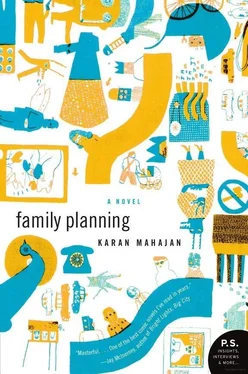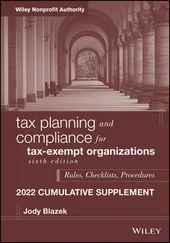“But I don’t understand,” said Rakesh. “He is not a Member of Parliament—”
“Yes, yes.” Rupa yawned. “That also, bhaiya, I have taken care of. Why are you worrying? Late Satish Kumar’s seat is now available. As a result, there is a by-election in his district in Bihar one week from now. The Rajya Sabha seat. From there he will run.”
Mohan added congenially, as if to erase doubt, “I have had an interest in politics since young age, Uncle. My late father was a magistrate in U.P. My mother was active in village panchayats. All my chachas and taujis, they were IAS officers. I know men in every place. I have a man in the tax department. I know the heads of all corporations through advertising campaigns. Sanyo. BPL. Videocon. Reliance. Airtel. All CEOs are my friends. With some of them I have even played golf. These connections, obviously, I would like to use to whatever ends possible.”
“Very impressive,” said Mr. Ahuja sarcastically. Then he turned to Rupa. “Maybe you can get me a job being the new Mohan Bedi?”
But this elicited no response from Rupa. Her right hand twitched nervously as she stared blankly at the paintings on the wall. She seemed to be not listening. He had never seen her like this, this serious. And that was when Rakesh understood: he was right, this was too comic even for Indian politics. Even the comedian-in-chief, the SPM, knew it.
This was tragedy masquerading as comedy. Appointing a guileless TV star as the Prime Minister was the rhetorical move of a person at the very end of her tether. Rupa Bhalla had realized that she was isolated in the party, and instead of resigning, she’d chosen to implode in a great fit of ridiculousness. Rakesh understood; he had done the same by marrying Sangita. The only difference between him and Rupa was that Rupa Bhalla had no regrets. He’d never known her to doubt herself. She wouldn’t be calling everyone up and saying she was sorry for picking Mohan Bedi as her deputy, whereas Mr. Ahuja exploded and then whimpered his sorries. He was not fit to take revenge. He was always reneging.
He had come, he remembered, to apologize about his letter.
“What about my letter?” he asked. “What did you think? Are you suspending Yograj?”
“Ah, yes,” she said. “The famous letter you sent me, how could I forget, baba? You know what my first thoughts were when I read it after you left? That I should have it framed. But you also, Ahuja, you are always throwing spanners in my works. How can I get it framed if you sent it via the e-mail? Tell me? See, that is the problem. When paper is there, I remember. When e-mail is there, I forget. E-mail I cannot frame.”
“Yes, ji. And?”
“I have forwarded your e-mail to all your resigned colleagues for their consideration. I hope you are happy? Haan-ji?”
“Thank you, Rupa-ji,” said Rakesh. “I shall now be going.”
He had better be going. He could feel his left eyeball rattling in its cage of nerves. As he walked out, he placed both hands on his eyes and tried to convince himself that it was his sinuses. That he wasn’t plain uneasy. That the sadness he felt for Rupa’s imminent departure — the automatic sadness one feels when a towering personality, howsoever evil, is about to be toppled; the realization that life hereon for them will be a crushing chore of humiliation — wasn’t preemptive sadness for himself. After all, he’d lost Rupa’s patronage — lost Rupa altogether — and his resignation letter, that scribbled stupidity, was doing the rounds of the party’s upper echelons. Exposing his utter contempt for the Hindu nationalist engine that powered his peers. These could be his last days in the KJSZP (H202), the party that had been his life.
Mr. Ahuja drove home. Delhi appeared to be cleansed, dipped in Dettol and covered in yellow pointy neem leaves. It must have drizzled when he was in the SPM’s drawing room because the mascara of smog ran dark in drains, the air so clean that Mr. Ahuja didn’t blink for a full minute and scarcely noticed it. From his car window Delhi seemed as solid and surreal as the inside of a paperweight: not a beggar in sight under the Secretariat Flyover, the gardener at the entrance to his house holding down the mouth of his hose pipe so that water peacocked out across the shrubbery, his free hand saluting Mr. Ahuja who realized that he, too, lived in a bubble, in Central Delhi, Manicured Delhi, Delhi of Roundabouts, Cluster of Bureaucratic Juggernauts. The clutch was tight so he pressed down. His thigh muscles were swimming in lactic acid. He was sweaty, tired, grubby; he was home.
The forbidding iron-and-bamboo gate to his house was decorated with twisted tin plates that had been painstakingly calligraphed in fluorescent greens and bright reds by his children. These plaques issued dire warnings before disappearing from view as the guard swung back the gates:
TRESSPASSERS WILL BE PROSECUTED
BEWARE OF GARD
PRIVAT PROPERTY
LINGER HERE / BE SHOT LIKE DEER
WELCOME TO AJUHA HOUSE, POPULATION 21
The signs lightened his mood as he parked the car. He hadn’t corrected their silly mistakes; mistakes were exactly what one cherished sometimes about one’s children.
The house, too, he’d refused to renovate. The great colonial bungalow before him twinkled on its private sea of grass. He loved it as it was — its powdery white walls, expansive rooms, the high ceilings that overlooked a circus of convection currents, the ancient wire-insulating wooden tubes running at sharp angles along the walls before imploding in the round black plastic terminals of this or that light switch — and all of a sudden, entering through the front door, he was sad he’d spent so little time here with his children. They surrounded him immediately, and he wanted to hug them and kiss them, and so he did. He noticed everything about them: the gluey smell of their bodies; their sickly thin limbs; the girls with their braids they’d inherited from Sangita (braids that were easily pulled and thus led to frequent fights); the boys wearing sleeveless basketball shirts with American brands printed in absurd fonts; the varied fuzziness of their cheeks as he went around twisting them to unlock the steel smiles of their braces.
Only Arjun was missing. He was sitting at the dinner table with his feet kicking at one of its solid legs. The rest of the children joined him in their regular dinner positions. Mr. Ahuja at the head; Sangita at the other end; Arjun only an elbow away from his father.
It was a solemn meal. Mr. Ahuja tried to concentrate on the mechanics of eating — the rippled plain of daal across his plate, the symmetrical mounds of aalu and gobi he lined up before blasting them away with powerful scoops of his chappati, the dollops of yogurt he used to neutralize the burned spices — but it didn’t work. He ate indiscriminately and rapidly and in semipanic. He was aware of Arjun’s actions on the next chair: his slow, sulking marionetted movements. As for the other children, he couldn’t gauge any change in their behavior. Nor in Sangita’s. Apparently there hadn’t yet been a massive confrontation between Arjun and his siblings and stepmother. She in particular was as placid and contented as ever. She was eating massive quantities of daal. Mr. Ahuja remembered how, early in the marriage, he’d tried to send her on a slimming diet and had failed. Later, he’d brought up the issue in a highly erotic moment: Darling, yes, I feel so good, I like to get you pregnant because then at least you are eating so much for a good cause!
Good cause, indeed! Thirteen bloody good causes!
“I have news for all of you,” he said.
“What, Papa?”
“I have resigned.”
Читать дальше












